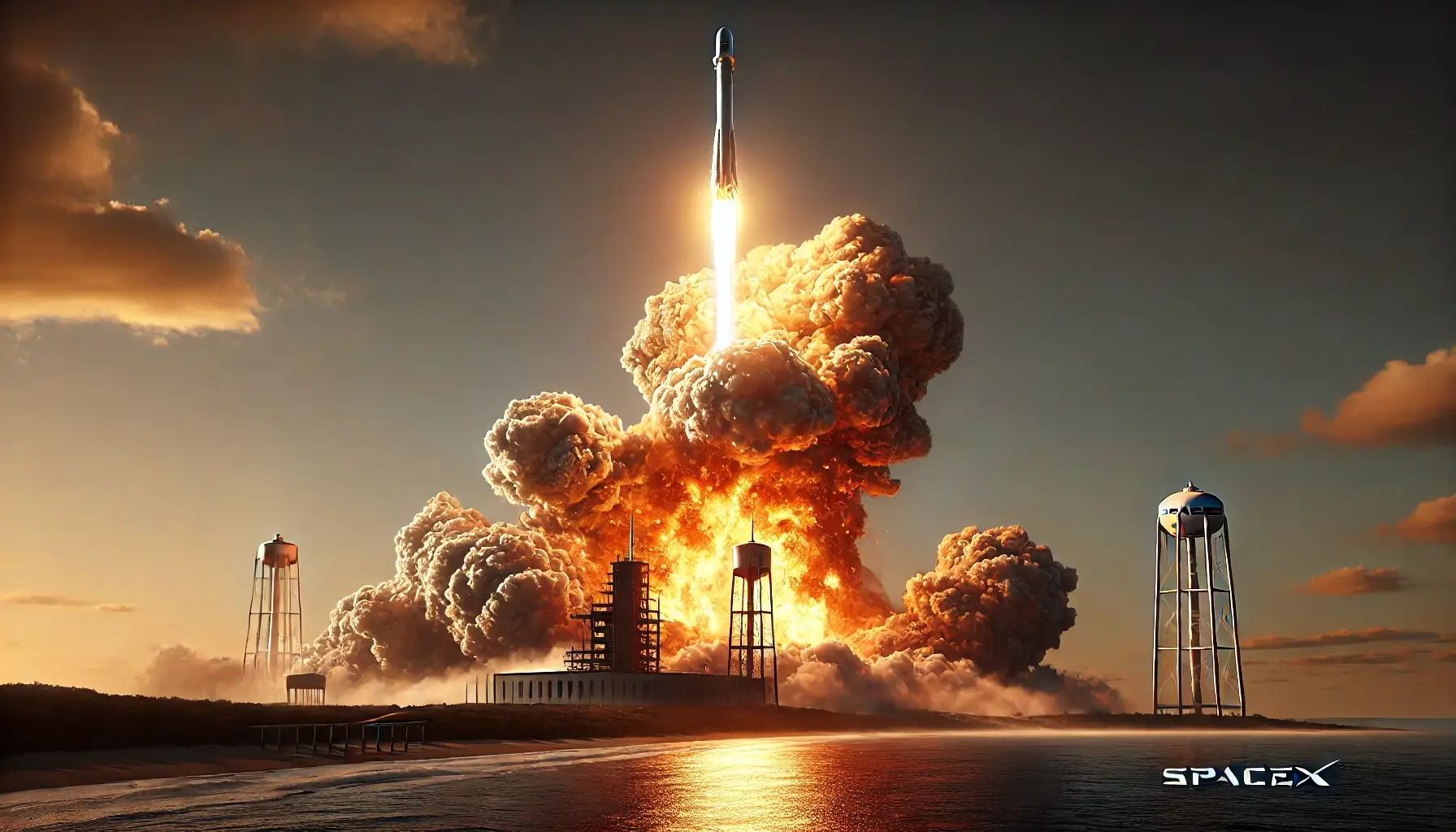SpaceX’s ambitious Starship rocket suffered a catastrophic failure during its seventh test flight, exploding mid-ascent shortly after launch on January 17, 2025. The test, conducted from the company’s Boca Chica facility in Texas, aimed to demonstrate significant advancements in reusable rocket technology but ended in a dramatic fireball that scattered debris across the site.
According to Engadget, the explosion occurred approximately four minutes into the flight as the spacecraft ascended toward orbit. Preliminary reports suggest a propellant leak may have triggered the failure, a possibility SpaceX CEO Elon Musk acknowledged in a post-launch statement. “We are investigating the issue thoroughly to ensure it doesn’t recur,” Musk said, emphasizing the experimental nature of these test flights.
Starship, coupled with its Super Heavy booster, represents SpaceX’s vision for interplanetary travel and future missions to Mars. The spacecraft is designed to carry humans and cargo beyond Earth, making this failure a significant setback for the company’s timeline. Despite the mishap, Musk reaffirmed SpaceX’s commitment to pushing the boundaries of space exploration.
The failed test highlights the challenges of developing cutting-edge aerospace technology. CBS News reported that the explosion scattered debris over a wide area, prompting concerns about environmental impacts. Local authorities are working with SpaceX to ensure proper cleanup and assess potential risks.
This marks the second major failure for Starship in recent months, raising questions about the feasibility of SpaceX’s aggressive testing schedule. However, industry experts note that such setbacks are expected in the development of revolutionary space technology. “Failures like this provide invaluable data that helps refine designs and improve future launches,” said aerospace engineer Sarah Henson.
While the explosion underscores the risks involved, SpaceX has repeatedly demonstrated resilience in overcoming technical challenges. The company has successfully launched numerous Falcon 9 rockets and completed high-profile missions for NASA, solidifying its status as a leader in commercial spaceflight.







